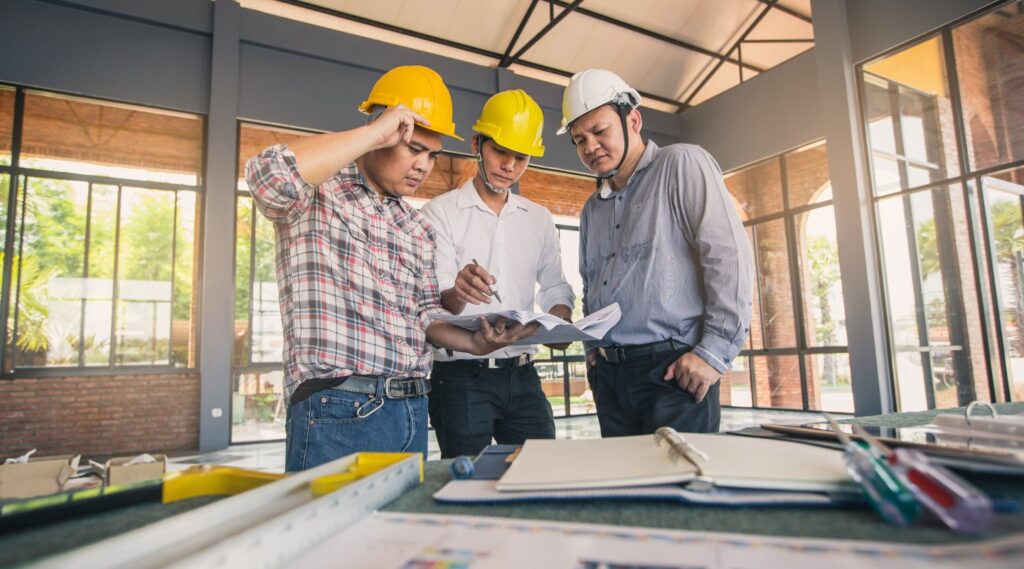The construction industry is vast and complex, involving numerous tasks, professionals, and processes to bring a project from concept to completion. Among the key players in this intricate ecosystem is the general contractor. Whether you’re planning a home renovation, building a commercial property, or undertaking a major infrastructure project, the role of the general contractor is critical to the success of your endeavor. In this blog, we will delve into what a general contractor does, why they are essential, and how to choose the right one for your project.
What is a General Contractor?
A general contractor, often referred to as a GC, is the person or company responsible for overseeing a construction project from start to finish. They manage the day-to-day operations, ensure that all the moving parts of the project come together smoothly, and handle a variety of tasks to keep the project on track.
In essence, the general contractor serves as the central point of communication and responsibility between the client, subcontractors, suppliers, and sometimes architects or engineers. While the scope of work may vary depending on the project’s size and complexity, the GC is typically in charge of the following:
- Hiring and supervising subcontractors (e.g., electricians, plumbers, painters)
- Procuring materials and supplies
- Managing project schedules and deadlines
- Ensuring compliance with building codes and regulations
- Overseeing inspections and quality control
- Handling permits and licenses
The general contractor’s goal is to deliver the project on time, within budget, and according to the agreed-upon specifications.

The Role of a General Contractor
Project Management
One of the primary responsibilities of a general contractor is project management. They act as the orchestrator, ensuring that each phase of the construction process progresses according to the plan. This involves scheduling the work of various subcontractors, coordinating deliveries of materials, and keeping the client informed about the project’s progress.
Because construction projects often involve multiple trades working together, it’s the general contractor’s job to ensure that all tasks are completed in the correct sequence. For example, you can’t install drywall until the electrical and plumbing work has been done. A skilled GC will know the correct order of operations and prevent unnecessary delays.
Subcontractor Coordination
General contractors typically do not perform all the work themselves. Instead, they hire and manage specialized subcontractors to handle specific tasks, such as plumbing, electrical work, masonry, or HVAC installation. The GC is responsible for vetting and selecting qualified subcontractors, negotiating their contracts, and ensuring that their work meets the required standards.
By managing the subcontractors, the general contractor ensures that the work is completed on schedule and meets the project’s specifications. They also handle any issues that arise during construction, such as delays, accidents, or changes in the scope of work.
Budget Management
Staying within budget is one of the most important aspects of any construction project. The general contractor is responsible for managing the project’s finances, which includes estimating costs, negotiating with suppliers, and tracking expenses. A good GC will provide an initial budget estimate, keep the client informed about any changes in costs, and ensure that there are no unexpected financial surprises at the end of the project.
Part of budget management also involves purchasing materials at the best possible price without compromising quality. Because general contractors often have established relationships with suppliers, they can often secure materials at a lower cost than a client could on their own.
Permitting and Compliance
Construction projects must adhere to local building codes and regulations, and in most cases, require permits from the local government. A general contractor takes care of this often-complex aspect of the project by applying for the necessary permits and scheduling required inspections. They also ensure that all work complies with safety and environmental standards.
Building without the proper permits or failing to comply with codes can lead to significant problems, including fines, delays, or even the need to tear down work that was not done correctly. The general contractor ensures that all these details are handled properly, protecting the client from these potential issues.
Quality Control
Ensuring the quality of the work is another critical responsibility of the general contractor. They must supervise the subcontractors and inspect their work to make sure it meets the project’s specifications and standards. A general contractor’s expertise allows them to spot any potential issues before they become major problems, ensuring that the final result is up to code and meets the client’s expectations.
Why Hiring a General Contractor is Important
For many, the question arises: Why hire a general contractor when I could manage the project myself? While this might seem like a good way to save money, it can often lead to more headaches, delays, and increased costs in the long run.
Here are some reasons why hiring a general contractor is crucial:
- Experience and Expertise: General contractors bring a wealth of knowledge and experience to the table. They understand construction processes, have relationships with subcontractors and suppliers, and know how to troubleshoot issues that arise on-site.
- Time Management: Construction projects are complex, involving multiple tasks that must be done in a particular order. General contractors are skilled in managing timelines, ensuring that each part of the project is completed on time, and preventing delays.
- Cost Savings: While it might seem cheaper to act as your own project manager, general contractors can often negotiate better rates with subcontractors and suppliers. They also help avoid costly mistakes and rework, which can significantly impact the final budget.
- Liability Protection: General contractors carry insurance to protect both themselves and the client from potential liability issues, such as property damage or injuries on the job site. If something goes wrong, the GC is responsible for resolving the problem.
- Building Code Compliance: Navigating building codes and permitting requirements can be tricky. A general contractor ensures that all aspects of the project meet legal standards, preventing future legal or structural problems.
How to Choose the Right General Contractor
Choosing the right general contractor is one of the most important decisions you’ll make in your construction project. Here are some tips to help you find a reliable and trustworthy GC:
- Check Credentials: Ensure that the contractor is licensed, insured, and bonded. This protects you if something goes wrong during the project.
- Experience and Reputation: Look for a contractor with a proven track record in projects similar to yours. Ask for references and check online reviews.
- Clear Communication: A good general contractor will communicate clearly and regularly, keeping you informed about the project’s progress and any potential issues.
- Detailed Estimates: Before signing a contract, ask for a detailed estimate that outlines all the costs involved, including labor, materials, and any potential extra fees.
- Contractual Agreement: Always have a written contract in place that clearly defines the scope of work, deadlines, payment schedules, and warranties.
Conclusion
A general contractor plays a vital role in the success of a construction project, acting as the key link between all parties involved. Their experience, project management skills, and ability to coordinate multiple subcontractors are invaluable in ensuring that a project is completed on time, within budget, and to the highest standard of quality. If you’re embarking on any construction project, large or small, hiring a reliable general contractor is one of the smartest decisions you can make.


